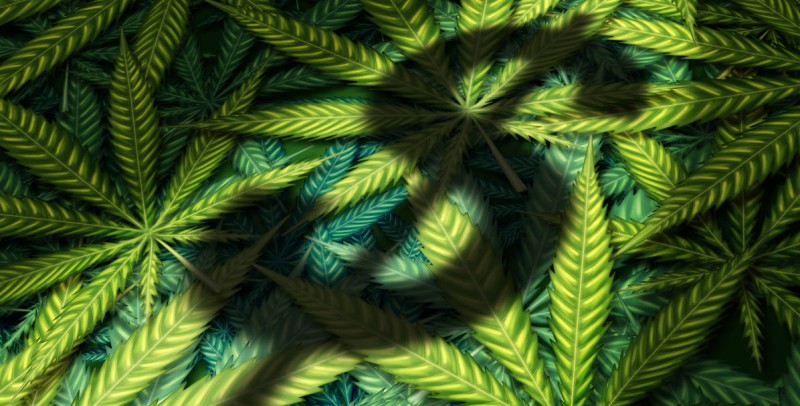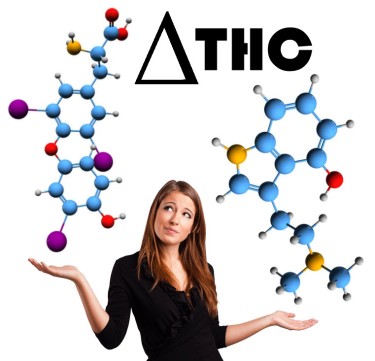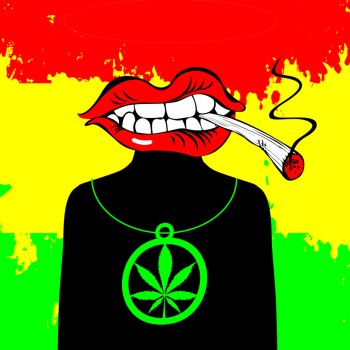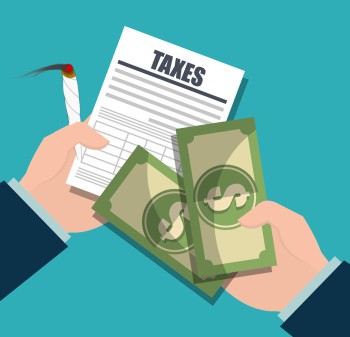Delta-8 THC products have gained significant popularity in recent years, with over $2 billion in sales as an alternative to traditional marijuana. A recent report by Brightfield Group, a cannabis analytics firm, suggests that the growing popularity of delta-8 THC products is drawing attention from other cannabis industries and prompting them to take action.
Delta-8 THC is a psychoactive cannabinoid found in hemp, which is said to produce similar effects as traditional delta-9 THC found in marijuana, but milder. The natural occurrence of Delta-8 THC is in small quantities. However, the products available in the market are made by chemically converting CBD into Delta-8 molecules.
Emergence of Delta-8 THC Products
Following the 2018 Farm Bill, which legalized the cultivation of hemp with a THC concentration of less than 0.3% at the federal level, Delta-8 THC products emerged. This legislation enabled companies to produce a variety of products containing non-psychoactive cannabinoids. These include CBD, CBG and other cannabinoids with psychoactive effects milder than THC, which are not considered illegal as they are derived from hemp.
However, there have been concerns regarding the safety of Delta-8 THC and similar products. This is because converting CBD molecules into THC molecules requires a skilled chemist's expertise to ensure safety since improper or imprecise techniques can lead to high impurities in the final product. Moreover, the impact of consuming these impurities on human health is not yet known.
But despite these concerns, the report highlights a significant overlap among the users of CBD, cannabis, Delta-8, and other newly developed cannabinoid products.
According to the report, 35% of CBD users have bought psychoactive hemp-derived products in the last six months. Given consumers' tendency to try new products, there are inclined to shift towards delta-8 over time, especially if the cost difference remains favourable. Furthermore, in states where marijuana is legal, almost a quarter of marijuana users are considering buying delta-8 products in the future.
In states where marijuana remains illegal, delta-8 THC has emerged as an accessible and cost-effective way to experience psychoactive cannabis. It can be obtained legally or through mail order, providing consumers with a less risky (from a legal standpoint) alternative to getting marijuana illegally.
A study published last year also confirms this trend. The study found that public interest in delta-8-THC rapidly increased in 2020 and 2021 and was exceptionally high in states where recreational cannabis has not been decriminalized or legalized. However, the report notes that the growing popularity of delta-8 in places where marijuana is still illegal could negatively impact efforts to legalize marijuana.
According to the report, if Delta-8 continues to gain popularity and establish a foothold in places where Delta-9 is restricted, the support for legalization measures could decline. This means funding for grassroots campaigns may slow, hindering progress towards full legalization in the U.S.
Furthermore, there seems to be a significant amount of confusion between delta-8 and delta-9, the primary compound of marijuana, even in states where it is legal. The report states that retailers selling delta-8 products market themselves as dispensaries but do not clarify that the compound is derived from hemp.
Changes in Consumer Behaviour
The authors also noticed changes in consumer behaviour in the CBD market, which provides better insight into how the Delta-8 market is impacting the cannabis industry. Following the Brightfield Group report, there has been a decline in online purchases of CBD since its peak in November 2020. The group recorded a sharp decrease in online sales from November 2021 (reportedly down 53% from Q4 2021 to Q3 2022).
During this time of decline, there's been a 42% increase in purchases from smoke and shops, providing more opportunities for consumers to be exposed to hemp-derived THC products. As 64% of CBD users report occasionally using cannabis, these consumers may be inclined to switch to THC, especially in regions where adult-use THC is illegal.
How CBD Companies Can Tackle The Increased Popularity of Delta-8 THC Products
The report suggests strategies that cannabis and CBD companies can adopt to address the rising popularity of delta-8 THC products.
To compete with the unregulated delta-8 THC market, companies in the CBD and cannabis industries should emphasize the importance of safety and testing for hemp-derived psychoactive products. They should point out the lack of testing and oversight for delta-8 THC products, which can make them potentially more harmful than naturally derived products, such as CBD.
According to the report, an alternative strategy is for CBD and cannabis companies to "diversify" into the delta-8 THC market by including Delta-8 and other similar products in their product offerings. CBD companies should consider if they want to invest in introducing hemp-derived cannabinoids in non-legal THC markets to gain regional brand recognition before full legalization takes place. While this could later cause confusion, it's a way to establish the brand while regulatory and legal matters are being resolved.
Meanwhile, many companies in this field are choosing to ignore delta-8 THC products, hoping they will be prohibited by the 2023 Farm Bill or naturally disappear. The legal status of Delta-8 and similar compounds is uncertain, and it may be the best decision for a company not to engage with them.
While the legal status of delta-8 THC is unclear, some states have taken steps to try and ban them. The Food and Drug Administration (FDA) reported more than 100 cases of negative effects linked to delta-8 THC product use between December 2020 and February 2022. In May, the FDA issued warning letters to five companies selling these products for illegal marketing, unapproved treatments for medical conditions, drug misbranding and the addition of delta-8 THC in food.
Conclusion
It's unclear what the future holds for products like delta-8 THC and other hemp-derived cannabinoids with psychoactive effects. This is because the upcoming Farm Bill, set to be written in 2023 and take effect in 2024, has the potential to impact the current unregulated market significantly. The Farm Bill could regulate this grey market, completely banning these products or taking no action at all. It's a waiting game to see which direction the bill will bring.








